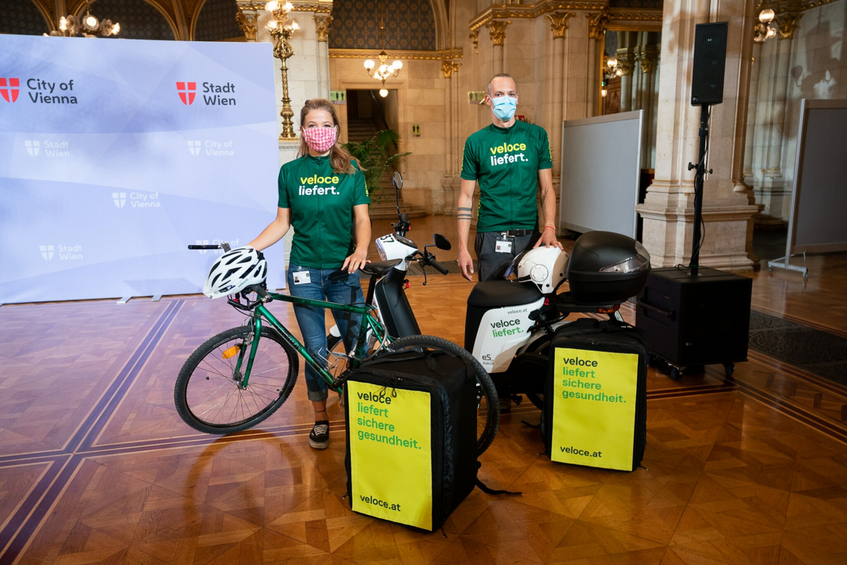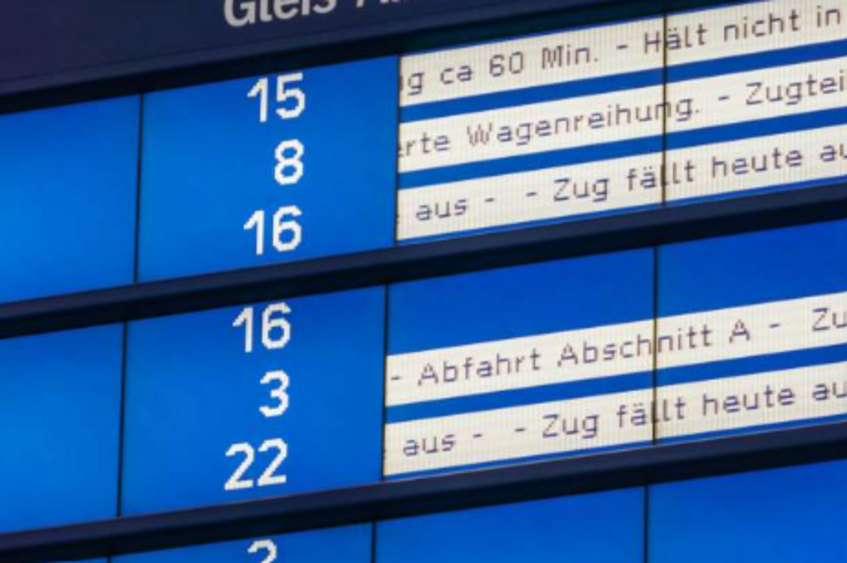Research Focus Area Simulation-Based Analytics (SimBA) – Smart Decision-Making for Challenging Applications
We live in a world full of dynamic and heterogeneous socio-economical and socio-ecological challenges. We want to address these challenges with simulation-based analytics (SimBA). SimBA is about data-driven, smart decision making including causal and expert information. The starting point is data, which can be derived from large operational databases. SimBA’s approach is that simulation of socio-economical and socio-ecological relationships and systems provide synthetic data. Simulation focuses on microscopic, agent-based models, but will include also other modeling approaches. The created data and information needs to be transformed into information models, which describe the complex relationships compactly. This information is considered in anticipatory decision models, which allow for making smart decisions. The impact of these decisions can be evaluated by simulation models again, and the whole process can be refined until the trade-off between economical and ecological goals has been explored sufficiently.

Implementation
The focus on simulation-based analytics has developed from an informal collaboration between the University of Vienna, Business Analytics Group (UV, Jan Ehmke) and TU Wien, Data Science Unit, and Computational Statistics Unit (TUV, Niki Popper). Now, three funded research projects with a funding volume of approx. 2 million euros are being implemented and will run until mid-2025. By the end of 2022, four universities and two corporate partners are involved, and further research projects with additional partners from science and business are being planned.
Methods
Together with our partners, we explore, apply, and investigate the entire process of business analytics and involved methods. This starts with multi-agent simulation to generate demand data and understand socio-economical and socio-ecological challenges better (descriptive analytics), continues with information modeling via information aggregation (predictive analytics), smart decision-making via mathematical optimization (prescriptive analytics), and ends with an evaluation of implemented decision and their implications via multi-agent simulation. This holistic view allows us to model complex real-world interactions and anticipate the impact of decision-making on these. A significant challenge is the complexity of the individual steps. Hence, in our center, we need to adjust the different methods with each other such that they can operate on a computable level of detail that is still sufficient enough to support smart decision-making.
Research Projects
Dynamic Tester Routing || Nov 2022 – Apr 2025 || funded by Austria Science Fund (FWF)

Dynamic Tester Routing || Nov 2022 – Apr 2025 || funded by Austria Science Fund (FWF)
In the COVID-19 pandemic, we saw that rapid and efficient testing can effectively slow down the spread of a virus. Based on the idea of a mobile fleet of testers, we want to investigate how scarce resources can be used sensibly in a dynamic environment by planning. For this purpose, modern methods and tools from agent-based simulation, data analysis, and dynamic vehicle routing are used to examine the use of mobile tester fleets for COVID-19 cases. Abstracting from the COVID-19 example, we also want to analyze similar problems. When is the interaction of predictive analytics in combination with machine learning helpful? How can detailed simulations improve forecasts? And how does one computationally feasibly integrate information from highly complex simulations into predictive planning? Examples here extend far beyond COVID-19, e.g., to demand forecasting for delivery services.
Participants in the project are Univ.-Prof. Jan Fabian Ehmke from the University of Vienna, who will focus on demand modeling. In addition, there is the expertise of Univ.-Prof. Dr. Marlin Ulmer, University of Magdeburg, who will be responsible for learning procedures related to predictive vehicle routing. Evaluation and demand generation will be done by Dr. Niki Popper (TU Wien), an expert in agent-based simulation.
Cooperation partners

This project is funded by The Austrian Science Fund (FWF): project number I 5908-G.
Green TrAIn Plan || Apr 2022 – Mar 2025 || funded by FFG

Source: Johannes Plenio on unsplash.com
Green TrAIn Plan || Apr 2022 – Mar 2025 || funded by FFG
In this project, the focus is on the planning of green railway operations. To this end, we will develop and investigate new techniques for resource planning considering environmental objectives such as minimizing energy consumption. We want to overcome the significant challenge of modeling energy consumption in a way that sim-heuristics can create green schedules for trains and drivers. These techniques will be AI-based and include sim-heuristics that learn to solve resource planning problems by combining simulation and optimization. This requires the analysis and aggregation of real-world energy consumption data provided by ÖBB, modeling of resource planning, as well as defining AI-based interaction between simulation and heuristic optimization.
The consortium is led by dwh GmbH and further consists of ÖBB Produktion GmbH, the University of Vienna, and the Technical University of Vienna. ÖBB will provide the required data, UV will focus on data aggregation for energy consumption modeling, and TUV and UV will work on integrated optimization and simulation of drivers' schedules.
Cooperation partners

The Austrian Research Promotion Agency (FFG) is the national funding agency for industrial research and development in Austria. Green-TrAIn-Plan (FFG project number 892235) is sponsored by the Federal Ministry for Climate Action, Environment, Energy, Mobility, Innovation and Technology as part of the AI4Green call for projects. www.ffg.at
VIPES || Oct 2022 – Mar 2025 || funded by FFG

VIPES || Oct 2022 – Mar 2025 || funded by FFG
This project aims to design both traction unit and train crew schedules in such a way that they are efficient and reliable. To estimate the quality of the schedules determined with mathematical optimization models and sophisticated solution methods in a realistic environment, they are evaluated in detail by an agent-based simulation. The major advantage of agent-based simulation is the possibility to evaluate all relevant details and evaluating them concerning reliability. Optimization models, on the other hand, have to abstract from the details of the overall railroad system to find satisfactory solutions in acceptable runtimes.
The consortium is led by dwh GmbH and further consists of ÖBB Produktion GmbH, the University of Vienna, and the Technische Universität Dresden (TUD). DWH is in charge of the agent-based simulation, analysis of operational data, and project management. ÖBB will provide the required timetable, anonymized personnel requirements, and disturbance data and will be available for discussions on the relevant planning problems. In particular, TUD will further develop mathematical models for circulation and shift planning as well as suitable solution approaches. UV will map disruptions using reliability models and lead the development of an AI-based control system that forms a smart interface between mathematical optimization and agent-based simulation.
Cooperation partners

The Austrian Research Promotion Agency (FFG) is the national funding agency for industrial research and development in Austria. VIPES (FFG project number 893963) is sponsored by the Federal Ministry for Climate Action, Environment, Energy, Mobility, Innovation and Technology as part of the AI4Green call for projects. www.ffg.at
Projects & People
Projects & People
- University of Vienna: Univ.-Prof. Dr. Jan Fabian Ehmke; Dr. Ninja Söffker; Gislind Stefan; Kanchan Joshi, PhD; Peiman Ghasemi, PhD; Fatih Kocatürk, PhD
- TU Wien: Dr. Niki Popper; Dr. Martin Bicher; Dr. Günter Schneckreither; DI Dominik Brunmeir; Univ.-Prof. Dr. Allan Hanbury; Univ.-Prof. Dr. Peter Filzmoser, Ao. Univ.-Prof. Dr. Andreas Rauber
- Technische Universität Dresden: Univ.-Prof. Dr. Udo Buscher; Dr. Janis Neufeld; Dr. Martin Scheffler, Paul Päprer
- Otto-von-Guericke Universität Magdeburg, Univ.-Prof. Dr. Marlin Ulmer, Jarmo Haferkamp
- dwh GmbH: Michael Landsiedl; Dr. Irene Hafner; DI Matthias Rössler; DI Matthias Wastian
